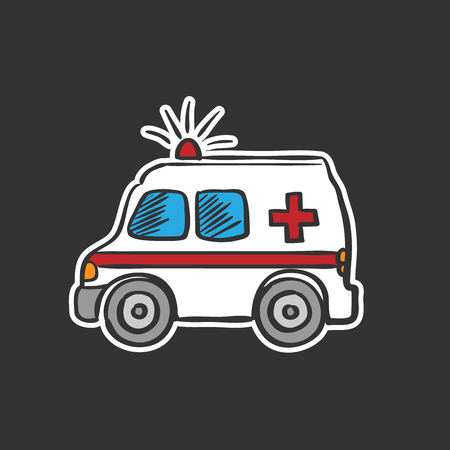Staying Calm in a Crisis
When the unexpected happens and you find yourself alone, your first step should always be to stay calm. In the UK, there’s an old saying: “Keep calm and carry on.” It might sound cliché, but it truly matters when facing emergencies on your own. Take a slow, deep breath and give yourself a moment to steady your nerves—panic clouds judgement and can make situations worse.
How to keep your composure: Start by grounding yourself: focus on your surroundings and take note of any immediate dangers. Use the 5-4-3-2-1 technique—a favourite among Britons—which involves naming five things you can see, four you can touch, three you can hear, two you can smell, and one you can taste or sense. This simple trick helps anchor your mind in the present and stops anxious thoughts from spiralling.
Once you feel settled, quickly assess what’s gone wrong. Is it a medical emergency? Have you lost power at home? Or perhaps you’re stranded somewhere unfamiliar? By calmly working out the facts, you’ll be able to decide on the next practical steps. Remember, British emergency services recommend remaining as clear-headed as possible so you can communicate effectively if and when you need help.
Contacting Emergency Services
Step-by-Step Guide to Calling 999 or 112
If you find yourself in a situation where you need urgent help and are alone, knowing how to contact emergency services quickly and calmly can make all the difference. In the UK, you can dial 999 or 112 for immediate assistance from police, ambulance, fire brigade, or coastguard. Here’s a simple step-by-step guide:
- Stay calm. Take a deep breath and try to speak clearly.
- Dial 999 or 112. Both numbers work across the UK and throughout Europe.
- Listen carefully. The operator will answer with “Emergency, which service do you require?”
- State the service needed. Say “Police”, “Ambulance”, “Fire”, or “Coastguard”. If unsure, briefly explain your emergency and they’ll guide you.
- Provide details. Answer questions about your location and the nature of the emergency.
- Follow instructions. The operator may give advice before help arrives—listen closely and stay on the line unless told otherwise.
Information to Provide
Giving clear information helps responders get to you quickly and prepared. Here’s what you’ll typically need to share:
| Information Needed | Example/Explanation |
|---|---|
| Your location | E.g., “I’m at 10 High Street, near the post office in Sheffield.” Use landmarks if unsure of the address. |
| The nature of the emergency | E.g., “Someone has collapsed and is not breathing.” Or “There’s a fire in my kitchen.” |
| Your phone number | This allows them to call back if disconnected: “My number is 07xxx xxxxxx.” |
| Who is involved? | E.g., “It’s just me,” or “There are two people injured.” |
| Any dangers present? | E.g., “There’s smoke,” or “The person is unconscious but breathing.” |
Useful Local Phrases & Tips
If English isn’t your first language, don’t worry—operators are trained to help. Here are some phrases that might come in handy:
- “I need an ambulance, please.”
- “I’m on my own and something’s gone wrong.”
- “Can you send help to [address/landmark]?”
- “I don’t feel safe.”
- “Please stay on the line with me.”
If you’re unable to speak (for example, due to medical reasons), after dialling 999 from a landline, press 55. This will alert the operator that you need urgent help but cannot talk. This feature is known as the Silent Solution system.
This knowledge can provide reassurance for anyone living alone or responsible for young family members—knowing what to do means you’re never truly alone when emergencies happen.

3. Basic First Aid at Home
When you find yourself dealing with an emergency alone, knowing some basic first aid can make all the difference. Whether it’s a minor cut, burn, or something more serious like a fall, being prepared is essential for every household in the UK. Here are some essential tips tailored for British families to help you manage common mishaps at home and know when to seek extra help.
Essential First Aid Steps Everyone Should Know
Keep a well-stocked first aid kit in an easy-to-reach place, such as the kitchen or hallway cupboard. Make sure it includes plasters, sterile dressings, antiseptic wipes, bandages, and safety pins. For minor injuries like small cuts or scrapes, clean the wound under running water and cover with a plaster. In case of burns, run cool (not cold) tap water over the area for at least ten minutes and avoid using ice.
Dealing with More Serious Situations
If you experience heavy bleeding, apply pressure with a clean cloth and try to keep the injured area elevated. For suspected broken bones, try not to move the affected limb and seek medical advice. If someone is unresponsive but breathing, place them in the recovery position while you wait for help.
Where to Find Help and When to Call 999
The NHS offers reliable support through their non-emergency number 111 if you’re unsure about your next steps but don’t think it’s life-threatening. For urgent situations—such as chest pain, severe bleeding, difficulty breathing, or loss of consciousness—don’t hesitate to call 999 immediately. Always have important numbers saved on your mobile and let family members know where the first aid kit is kept.
Remember, being calm and prepared is key. The more familiar you are with these basics, the more confident you’ll feel handling emergencies on your own until help arrives.
4. When to Involve Trusted Neighbours or Friends
In the UK, our sense of community is one of our greatest strengths, especially when facing an emergency while alone. Knowing when and how to reach out to your trusted neighbours or friends can make a world of difference, not only for your own safety but also for peace of mind. Here are some practical tips on engaging your local support network effectively.
Recognising the Right Moment
Sometimes, you might feel uncertain about whether your situation warrants involving others. As a rule of thumb, if you feel unsafe, unwell, or unable to handle the situation by yourself—such as after a fall, feeling faint, or if there’s a power cut late at night—it’s wise to contact someone nearby. Remember, it’s always better to be cautious and ask for help early rather than risk matters getting worse.
How to Reach Out Sensibly
Reaching out doesn’t have to be dramatic. A simple text, phone call, or even a knock on the door can do the trick. The British approach often values politeness and minimal fuss, so it’s perfectly acceptable to say something like:
- “Sorry to trouble you, but I’m feeling a bit off—could you check in on me in an hour?”
- “There’s been a power cut; could we stick together until it’s sorted?”
- “I’ve had a fall—would you mind popping round just to make sure I’m alright?”
Setting Up Community Contacts
Being prepared before anything goes wrong is key. You can set up a small list of trusted contacts among your neighbours and friends who live close by. Make sure everyone knows their role in case of an emergency. Here’s a simple way to organise this:
| Name | Contact Number | Role/Availability |
|---|---|---|
| Sarah (next door) | 07123 456789 | First point of contact (home evenings) |
| Tony (opposite) | 07234 567890 | Daytime help (works from home) |
| Maggie (down the road) | 07345 678901 | Key holder/emergency backup |
Nurturing Your Network
A quick chat over the garden fence or sharing a cuppa can go a long way towards building stronger bonds with those living nearby. Don’t wait for trouble; keep relationships warm and communication open so that asking for help feels natural rather than awkward.
A Note on British Community Spirit
The UK’s culture places great value on looking out for one another without being intrusive. Most people are more than happy to lend a hand if asked politely. Don’t hesitate: if things go wrong while you’re alone, your neighbours and friends are there for good reason—to support each other through thick and thin.
5. Staying Safe While Awaiting Help
After contacting emergency services, it’s important to keep yourself as safe and comfortable as possible while you wait for help to arrive. Here are some practical tips tailored for situations where you might be alone and feeling vulnerable:
Keep Calm and Stay Put
If you are in a safe location, try not to move around unnecessarily. It’s often best to stay where rescuers expect to find you unless remaining there puts you at risk. Keeping calm can help you think more clearly and make better decisions.
Stay Visible and Accessible
If possible, make yourself visible to emergency responders. This could mean switching on lights if it’s dark, making noise periodically (such as tapping or calling out), or positioning yourself near a window. Avoid wandering off, as this might make it harder for help to locate you.
Keep Communication Open
Keep your mobile phone charged and within reach. If signal allows, update emergency services on your situation or location changes. Avoid unnecessary phone use that could drain your battery. If you have a portable charger, use it sparingly.
Prioritise Your Safety
Lock doors and windows if you feel unsafe from others, but ensure responders can access you when they arrive. Don’t open the door to strangers—only allow entry to identifiable emergency personnel.
What to Avoid
Don’t attempt risky activities such as climbing out of windows or forcing doors unless absolutely necessary for your safety. Avoid consuming alcohol or medication that could impair your judgement while waiting. Resist the urge to post details of your emergency on social media until help arrives, as this can cause confusion or unnecessary worry for loved ones.
Look After Yourself
If you’re able, keep warm with blankets or layers, drink water if available, and avoid panic by focusing on positive outcomes. Remember: emergency services are trained professionals who will reach you as soon as possible. Your job is simply to remain as secure and aware as you can until then.
6. After the Emergency: What Comes Next?
Even after an emergency situation has passed, its normal to feel a bit shaken or uncertain about what to do next, especially if you’ve handled things alone. Here’s how you can take care of yourself and access support within Britain’s caring community.
Follow-up Actions
Once the immediate danger is over, take a moment to review what happened. If you needed medical attention or called emergency services, make sure to follow any advice or instructions given by professionals. It’s important to keep any reference numbers or paperwork handy for future reference. If your property was involved—such as a break-in or fire—contact your insurance provider as soon as possible and document any damage with photographs.
Checking In With Yourself
After an emergency, your emotions might be all over the place. This is completely normal. You may feel relieved, anxious, angry, or even numb for a while. Don’t bottle it up—talk things through with trusted friends or family members. Sometimes simply sharing your experience can lighten the load. If youre finding it hard to cope, don’t hesitate to reach out for professional help. The NHS offers free mental health support, and many local charities have listening services just a phone call away.
Connecting With Your Community
Remember, you’re not alone—even if the emergency made you feel that way at first. British communities are known for rallying together in tough times. Local councils often run support groups, and neighbours are usually happy to lend a hand or a listening ear. If you need practical help—like fetching groceries while you recover—don’t be shy about asking; people are often more willing than you think.
Resources For Support
If you’re unsure where to turn, here are some useful starting points:
- NHS 111: For non-emergency medical advice
- Samaritans (116 123): For emotional support 24/7
- Citizens Advice: For practical and legal guidance after emergencies
- Your local council website: For community-specific resources and helplines
Moving Forward
The most important thing is to give yourself time to process what’s happened and not rush back into normal routines if you don’t feel ready. Emergencies can leave their mark—but with the right support and self-care, brighter days are ahead.


